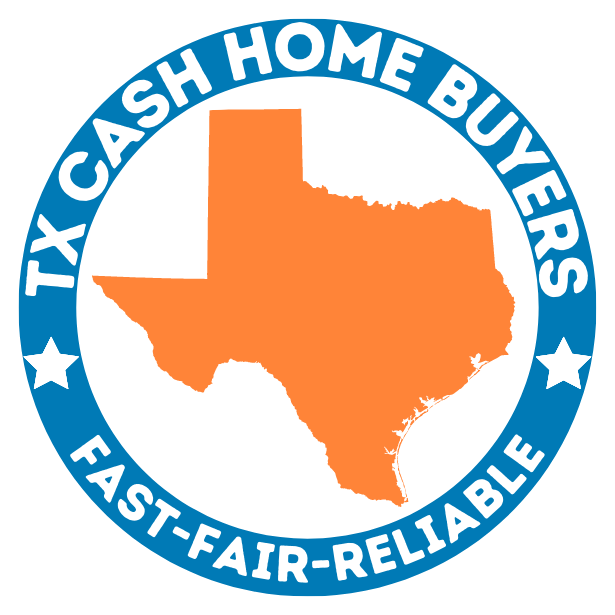
Real estate has gotten a lot of attention in recent years. After all, around 5 million houses sold in 2022. That’s a lot of new homeowners and even first-time homeowners.
Of course, economic situations change. After all, one of the drivers of that home buying frenzy was low mortgage rates. Those low mortgage rates are a thing of the past.
In fact, the economic situation has changed dramatically. While buying a house is on a lot of bucket lists, what happens if you can’t pay for that house down the road?
The unfortunate answer is that your bank will start the foreclosure process. Unclear about what that entails? Keep reading for a breakdown of what the foreclosure process is and how to avoid it.
What Are Foreclosures?
Foreclosures are, in the end, little more than extended legal processes. Lenders use them as a way to claim properties when the owners fail to meet their financial obligations. Of course, the goal of foreclosure isn’t the property itself.
Lenders have minimal use for actual property. After all, banks don’t deal directly in property. They deal in money.
The end goal for the lender is to sell off the property. That lets the bank pay off part or all of the outstanding mortgage balance, as well as any fees or interest.
Foreclosure Steps
As noted above, foreclosure happens as a process. There are six main steps in that process. Let’s look at each step individually.
1. Missed Payment
The true first step in the foreclosure process is a missed mortgage payment by the property owner. It’s the missed payment that ultimately triggers the rest of the process.
In some cases, this starts what you might call a pre-foreclosure process. That’s where the bank may reach out to the borrower by phone or by mail. They will also typically apply late fees to the balance due.
This gives the bank a chance to alert the borrower that they missed a payment. It also gives the borrower a chance to catch up if the missed payment really was some kind of error.
After three missed payments, the bank will usually issue what they call a demand letter. That’s a letter that specifies how much you owe and usually gives you a month to bring the balance current.
Other Articles You Might Enjoy:
- Essential Resources for Avoiding Foreclosure and Stopping Foreclosure in Texas
- Understanding the Difference Between Judicial and Non-Judicial Foreclosure
- Key Differences: Which Is Better Foreclosure or Short Sale?
- Sell Your House Fast and Avoid Foreclosure
- What’s the Difference Between Pre-Foreclosure vs. Foreclosure?
2. Notice of Default
Let’s say that another month goes by without payment or some other kind of arrangement with the lender. Then, things move up to a notice of default.
Unlike the demand letter, a notice of default is technically public. Although, it’s public in a very specific sense of the word.
The notice is public because the lender files the notice with the state court. For the most part, court records are public records. So, anyone could theoretically look you up in the records and see the notice.
The purpose of the notice is to alert the court and you that you have 30 days to bring the account current before the lender takes additional legal action.
3. Trustee’s Sale Notice
If you do not bring the account current for another 30 days, the foreclosure process starts in earnest. Different states have different rules about foreclosures, but they typically fall into two categories: judicial foreclosure and nonjudicial foreclosure.
With judicial foreclosure, the lender must go through a number of steps with approval from the state court. Demand letters and notices of default are some of those steps. Assuming the lender takes the appropriate steps, they can essentially file a lawsuit to get control of the property.
Nonjudicial foreclosures don’t require that court oversight to complete the foreclosure. The lender must simply file the correct paperwork.
Assuming the lender follows the proper steps in either case, they move on to a trustee’s sale notice for the property. Essentially, this notice tells the property owner and the public when an auction or sale for the property will happen.
The exact timing for the sale also varies by state, but some states allow a sale within two to three months.

Why Sell Your House To TX Cash Home Buyers?
1. You Pay Zero Fees
2. Close Quickly or the date of your choice
3. Guaranteed Offer
4. No repairs required, we buy as is
5. Less Hassles!
Call Now (281) 595-7550 Send Text
4. Trustee’s Sale
The trustee’s sale is the actual auction of the property. The lender typically sets a minimum price for the property. This minimum price is usually a combination of several things, including:
- Amount still owed on the property
- Unpaid taxes
- Late fees and interest
- Legal fees
- Anticipated auction costs
Assuming someone meets the minimum bid and can pay the bid amount, they get the deed. That person becomes the owner of record and can take possession of the property.
5. REO (Real Estate Owned) Property
Of course, not every trustee sale ends with a winning bidder. In some cases, no one bids. In other cases, a winning bidder can’t actually come up with the money. In situations like that, the bank becomes the owner of foreclosed homes.
At this point, banks usually turn to realtors in an attempt to sell the property through traditional sales channels. Again, banks don’t normally deal with physical property, so they prefer outsourcing the process of selling foreclosed homes.
6. Eviction
Once the auction concludes, the original borrower will typically get an eviction notice from either the auction winner or the bank itself. These eviction notices generally call for you to leave the property immediately.
However, the lender or auction winner may give you a period of time to leave the property.
Avoiding Foreclosure
Assuming that you still want your home, avoiding foreclosure is probably your top priority. The good news is that your lender doesn’t want to foreclose on your property.
Lenders want you to make payments on that mortgage because that’s how the bank makes money. So, let’s look at the ways you can avoid foreclosure.
Negotiate
The very first step on your list should be negotiating with your lender. While lenders bake a lot of rules into their mortgage agreements, they also bake in a lot of wiggle room.
For example, you can sometimes renegotiate the actual terms of the mortgage. This can help bring down the monthly payments to something you can handle more easily.
The lender may help you work out a repayment plan. For example, let’s say that you lost your job and got another one. You can start making full payments again but can’t realistically come up with a lump sum for the missed payments.
In that situation, the lender might divide the missed payments up over two or three years. That increases your monthly payment for a while, but by an amount you can handle.
The takeaway here is that your lender will do a lot for you if they believe there is a reasonably good chance you’ll make regular payments again.
Forbearance
Another option that many borrowers overlook is mortgage forbearance. This usually happens in situations where you face a temporary financial challenge that will resolve itself.
With a forbearance, the lender agrees to suspend your payments for a fixed period of time. The idea is that these suspended payments will give you a chance to resolve your financial crisis.
A forbearance isn’t a cure-all, though. As a general rule, you’ll owe the full amount for the months that you didn’t pay when the forbearance ends.
So, let’s say that your mortgage payment is $1,400 per month. You get a three-month forbearance. At the end of three months, you’ll need $4,200 for the bank. Although, again, the bank might prove willing to break that amount up with a repayment plan.
Short Sale
If you want to avoid foreclosure, you can also look into selling your house in a short sale. With a short sale, you sell the property but do so for less than the total amount you still owe on the mortgage.
These sales usually involve a cash buyer who can cover the entire offer upfront. The lender gets the proceeds from the sale. In exchange, the lender will typically forgive some or even all of the balance due.
The catch with a short sale is that you can’t do it on your own. Your lender will take a loss on the sale. So, you must discuss the short sale with them in advance and secure approval for it.
Deed in Lieu of Foreclosure
With this approach, you basically give ownership of the property to the lender of your own free will. In exchange, the lender gives you a pass on the rest of the mortgage. Lenders will sometimes do this simply to avoid the hassles and time involved in the legal foreclosure process.
The Foreclosure Process and You
The foreclosure process lets lenders claim properties and try to recoup their losses on unpaid mortgages. The process can prove time intensive and costly for the lender. That makes them highly motivated to avoid it if they can.
In terms of avoiding foreclosure, you have a handful of options. You can work out new terms for the mortgage. You can work out a repayment plan.
You can ask for a forbearance, conduct a short sale, or hand over ownership to the lender.
TX Cash Home Buyers buys homes for cash in the Houston area. For more information, contact TX Cash Home Buyers.
Disclaimer:
The content provided on this blog is for informational purposes only. We are not attorneys or tax professionals. For personalized legal or tax advice, please consult with a qualified professional.

About The Company
TX Cash home Buyers is a dedicated real estate team specializing in assisting homeowners with burdensome houses and complex situations. The team provides valuable guidance and solutions to homeowners navigating challenging real estate circumstances. Their commitment to delivering efficient and professional assistance makes them a trusted partner in helping homeowners find optimal resolutions for their property challenges.



